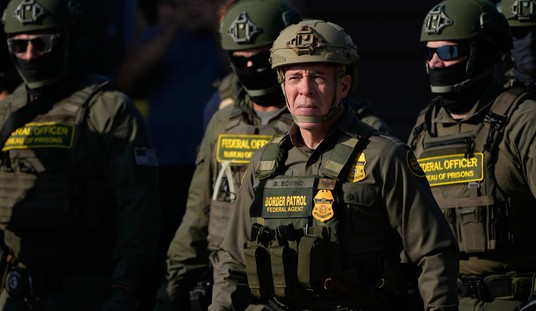Persons unknown have carried out a suicide bombing — against a hospital in Afghanistan. A suicide bomber “rammed an SUV packed with explosives into a local hospital in the Azra district in Logar just before noon today” according to Bill Roggio. killing 60 patients and doctors, including women and children.
Roggio adds that “the Taliban denied it carried out the attack … but the Taliban have carried out suicide attacks and bombings at hospitals, mosques, markets, and other civilian centers. On May 21, the Taliban claimed credit for a suicide attack at a hospital on Kabul that is frequented by military and police personnel. And just yesterday, the Taliban detonated a bomb at a market in Kunduz, killing ten civilians.” The immutability of non-Western behavior has now been subtly accepted. Yesterday the Washington Post reported that Hillary Clinton as saying that U.S. talks with the Afghan Taliban were “not a pleasant business, but a necessary one,” and said that the direct contacts had been made possible by President Obama’s aggressive military strategy against the insurgents. In other words the State Department, like Europeans two centuries ago, has recognized the necessity of treating with cultures who operate under the incentive of violence and has earned a seat at the table by being the Strongest Tribe.
The shape of post-withdrawal Afghanistan is beginning to emerge. According to the Washington Post, “the administration has said repeatedly that any negotiations leading to a political settlement must be ‘Afghan-led.’ But the Taliban has said it wants to speak directly with the United States”, while the US has delayed sending any senior representative to the talks until the Afghan government is brought into the talks. A third party has expressed interest in joining talks via its proxies: Pakistan. “Pakistan has pressed the United States to expand the talks to include the Haqqani network.” But America has objected.
“The problem is that Americans believe that this [Haqqani] group can’t be separated from al-Qaeda and it will not shun violence. So they don’t think dialogue . . . could be of any advantage,” a Pakistani official said. Karzai, the official said, is amenable to talks with the network, “but the hurdle is from the American side.”
In April, 2011 Bill Roggio reported that Admiral Mike Mullen said “It’s fairly well known that the ISI has a longstanding relationship with the Haqqani network,” he said in an interview with Pakistan’s daily Dawn newspaper.”
“Haqqani is supporting, funding, training fighters that are killing Americans and killing coalition partners. And I have a sacred obligation to do all I can to make sure that doesn’t happen. So that’s at the core – it’s not the only thing — but that’s at the core that I think is the most difficult part of the relationship,” Mullen said.
Pakistan will probably wiggle in somehow. The emerging composition of the talks suggests that post-withdrawal Afghanistan will look somewhat like civil-war Afghanistan: a varying coalitions of local tribes struggling and sometimes cooperating with an expansionary Pakistan, with maybe Iran thrown in for good measure. It will in any event be a weak state, with no long term inherent stability. It will continue to be trouble and the expectation was that America would continue to bomb and attack targets in it into the indefinite future. As the Brookings Institute put it, “Afghanistan is in the liquidation phase”. There is going to no future but trouble. It “gives Afghans far less of a stake in embracing the difficult undertaking and coming together as a nation. The myriad of certainties are likely to encourage, instead, a dangerous hedging policy of seeking to accumulate as much as money and power as quickly as possible before it all comes down.”
While President Obama did indicate that safehavens for terrorism will not be tolerated by the United States either in Afghanistan or in Pakistan, he also clearly indicated that such threats can be effectively dealt with from air and off-shore methods. Such a reconceptualization represents a victory for those who have advocated a limited counter-terrorism approach as opposed to a state-building, counterinsurgency approach.
The bottom line is that Afghanistan has passed, but it is not yet gone. It will become, like Yemen and possibly Libya, one of several countries that will continue to be the object of drone strikes indefinitely. It marks the failure of an attempt to create stable governments in chaotic areas. The “core” of civilization will not be extended. The existence of an unconquerable periphery has been accepted. President Obama’s Afghan campaign has ended in a shift towards the management of a chronic condition of terrorism.
“No Way In” print edition at Amazon
Tip Jar or Subscribe for $5










Join the conversation as a VIP Member